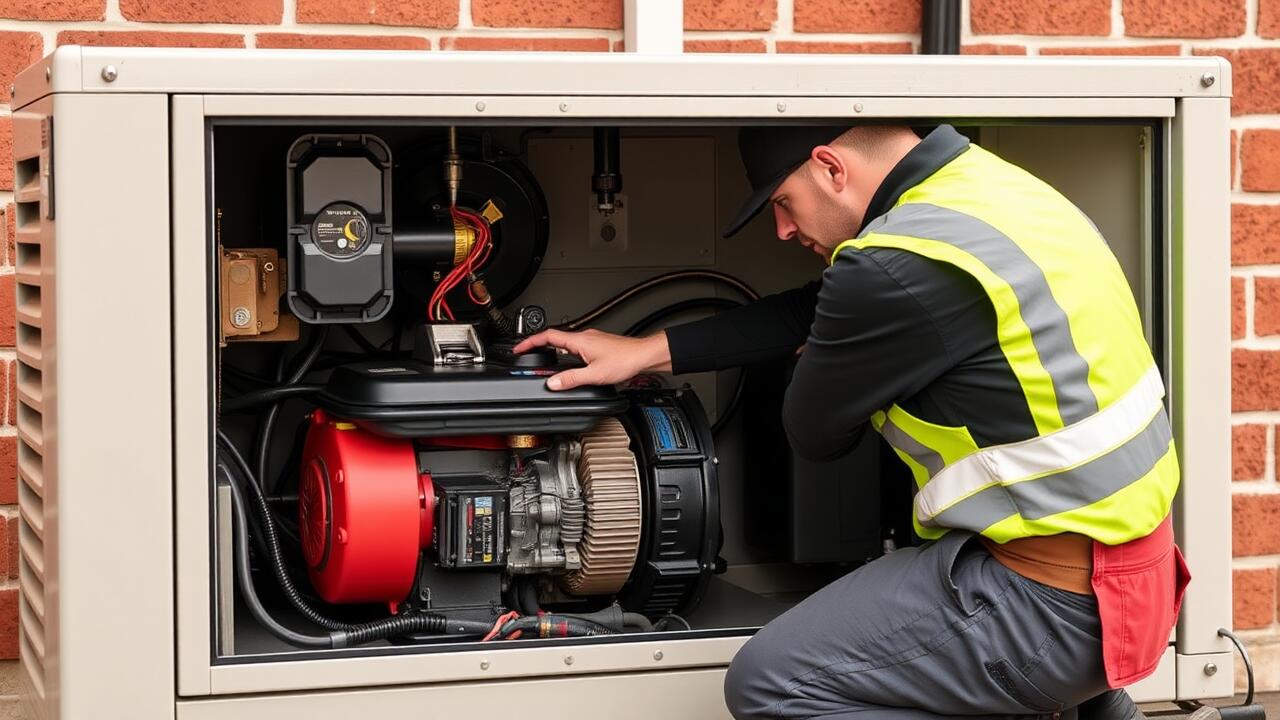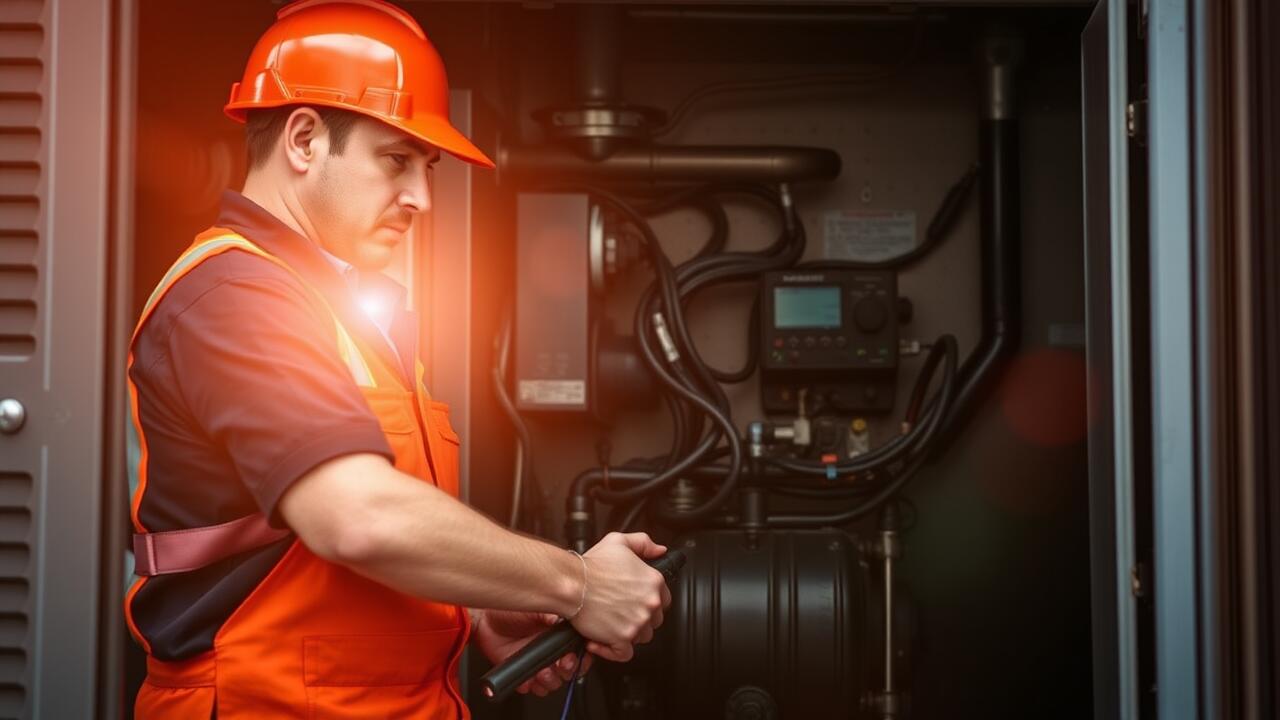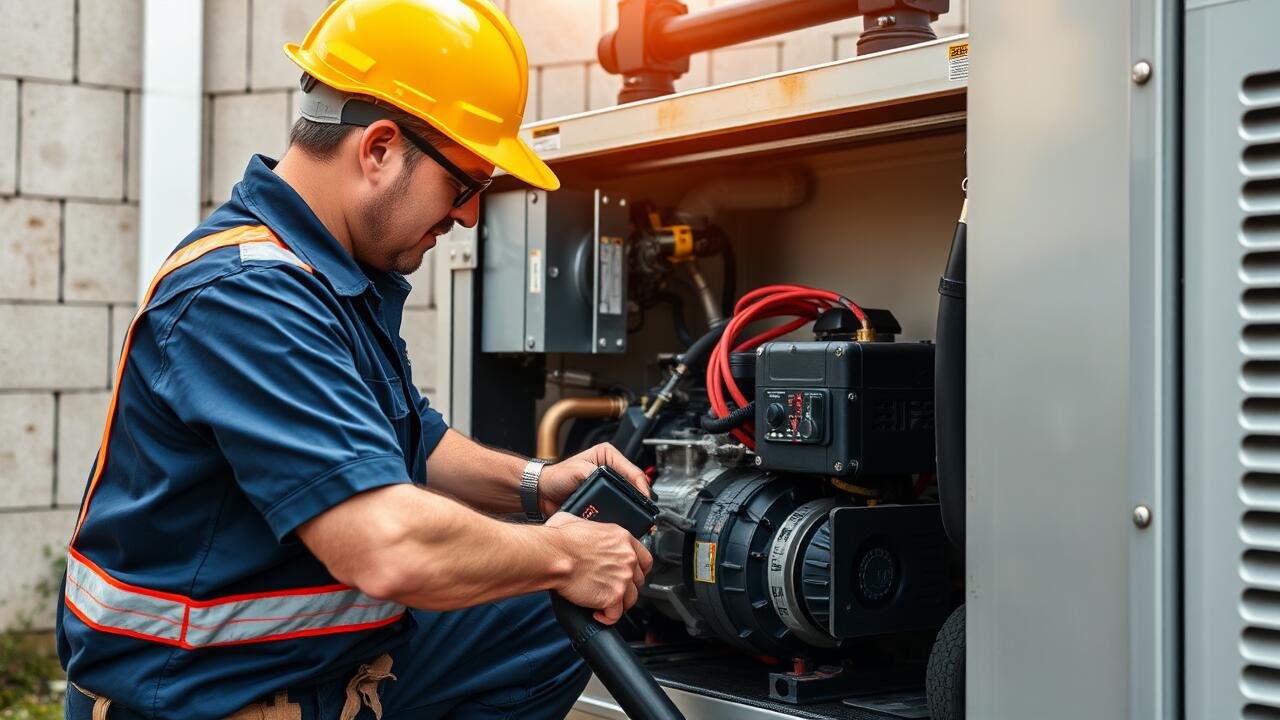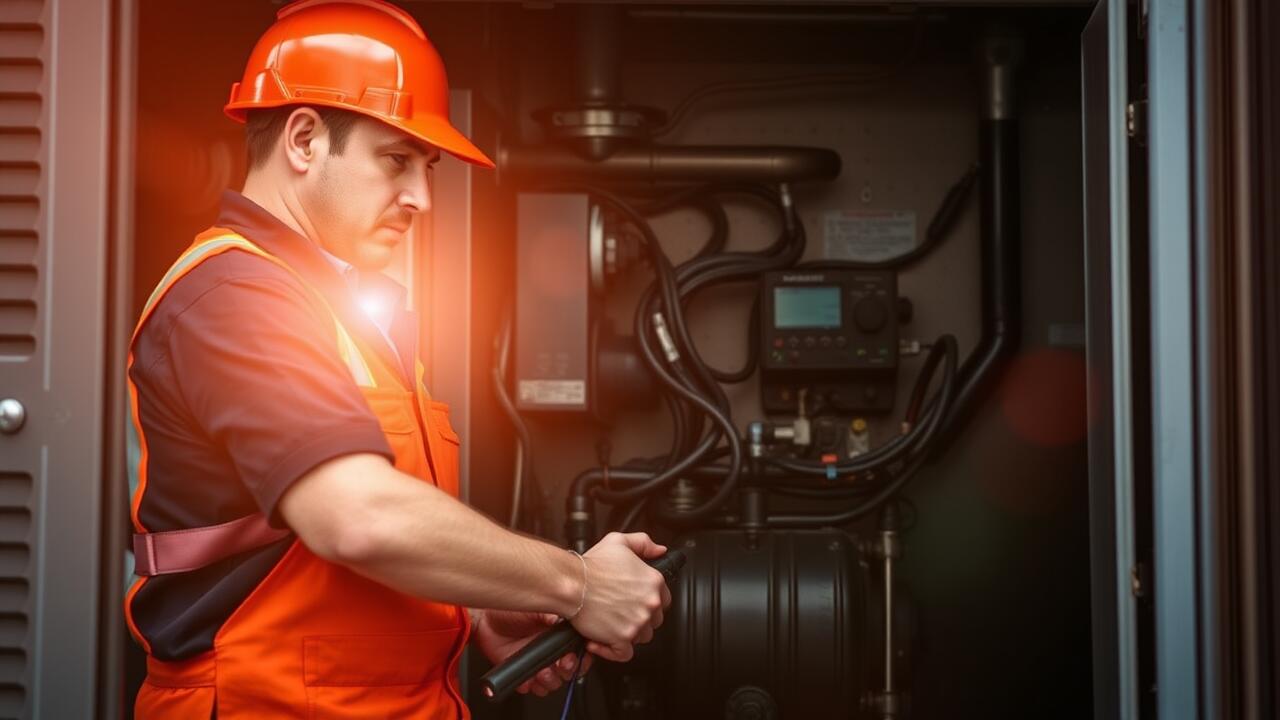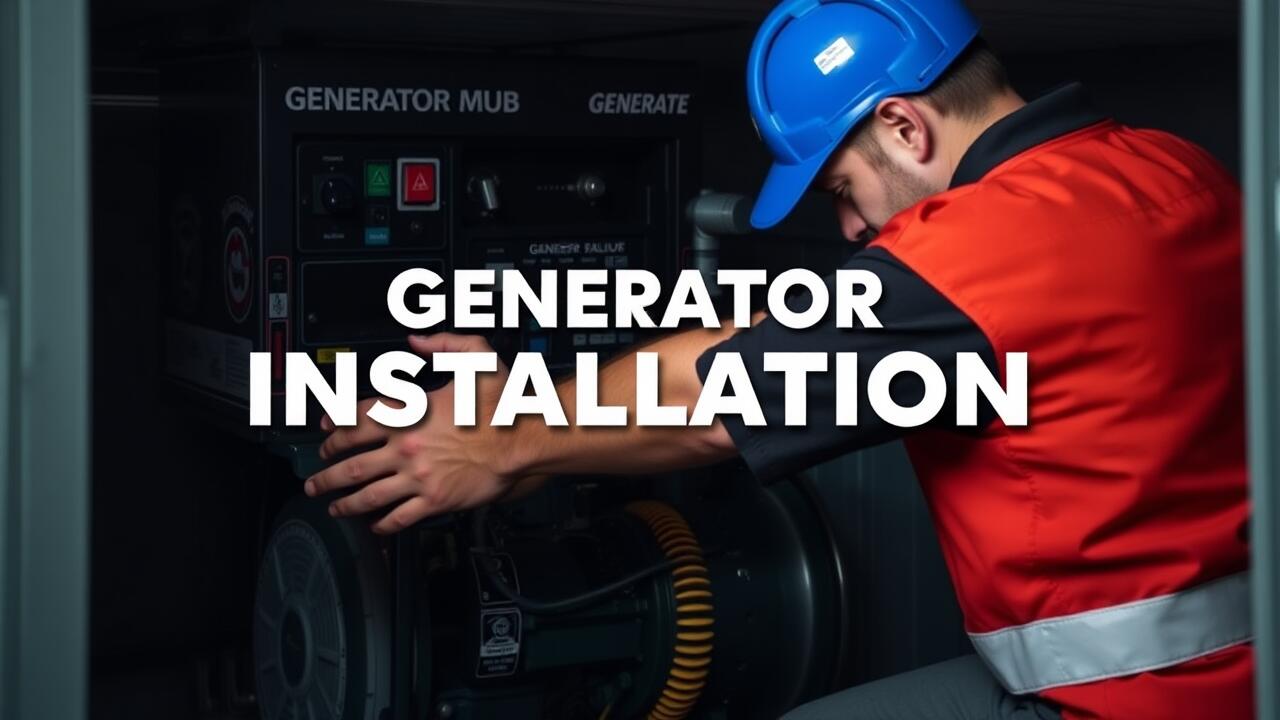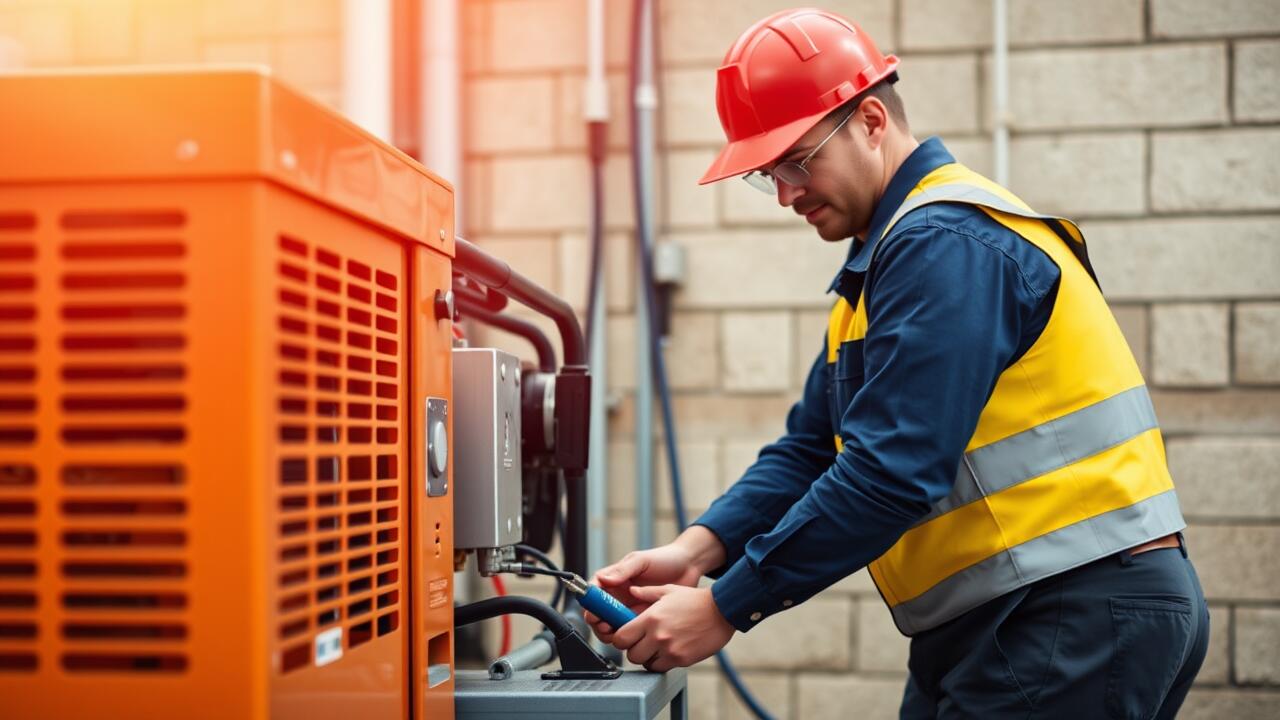
Evaluating Fuel Options for Generators
When selecting a generator for home use, evaluating fuel options is essential. Different fuel types, such as gasoline, diesel, propane, and natural gas, each offer unique advantages and drawbacks. Gasoline is widely available and often more affordable, but it has a shorter shelf life than other fuels. Diesel generators tend to be more durable and efficient; however, they can be more expensive to maintain. Propane can be a cleaner-burning alternative, while natural gas connections offer convenience and lower ongoing costs.
Generator Installation in Greenspoint, Houston, can also influence the choice of fuel type. Local availability, accessibility, and regulations play a crucial role in determining the best option for homeowners. Propane tanks may require more significant space and additional infrastructure, while the ease of connecting to natural gas might be appealing for some. Therefore, assessing environmental considerations and local utility availability is vital for making an informed decision.
Pros and Cons of Different Fuel Types
When considering fuel options for generators, each type has its advantages and disadvantages. Gasoline generators are generally more affordable and easier to find, but they require frequent refueling and have a limited shelf life when stored. On the other hand, propane generators offer longer shelf life and cleaner emissions but can be more expensive initially and depend on the availability of propane tanks. Diesel generators are robust and have a long operational life. However, they can be noisy and may require additional maintenance.
Generator installation in Greenspoint, Houston, brings certain factors into play depending on the fuel type chosen. Natural gas generators can be a great choice for homes already connected to gas lines, providing convenience and continuous power without the need for storage. Nevertheless, the installation may involve additional costs to ensure proper connections and safety measures. Each fuel option aligns differently with homeowners' needs, and understanding these pros and cons is crucial when deciding on the best generator for residential use.
Noise Levels and Generator Size
When selecting a generator for home use, noise levels can significantly impact your decision. Many generators emit considerable sound during operation, which can disrupt the peace of your neighborhood and even your own household. A quieter generator can provide ample power without the constant hum or roar associated with larger or more industrial models. This choice is particularly important in residential areas where noise restrictions might apply, making it essential to evaluate the decibel rating of different generator options.
Additionally, generator size often correlates with noise output. Smaller, portable generators may run more quietly but also deliver less power, while larger generators can produce a substantial amount of noise during operation. Homeowners in need of generator installation in Houston should consider both the power requirements and the noise levels, balancing their need for sufficient energy with the desire for a more peaceful environment. Understanding these factors helps ensure that your generator not only meets electrical demands but also aligns with personal and community standards for sound.
Importance of Choosing a Quiet Generator
Selecting a quiet generator is crucial for maintaining comfort and peace in your home environment. Excessive noise from a generator can disrupt daily activities and disturb neighbors, especially in residential areas. Generators designed with noise reduction technology can provide the necessary power without compromising your quality of life, allowing you to run essential appliances without the distraction of loud machinery.
When considering generator installation in Greenspoint, Houston, it's worth evaluating models that specifically prioritize sound efficiency. The long-term benefits of a quieter generator often outweigh the initial investment. Not only do they contribute to a more serene atmosphere, but they can also enhance the overall value of your property by promoting a more harmonious living space.
Budget Considerations for Generators
When planning to purchase a generator, understanding the initial costs versus long-term savings is crucial. Generators vary significantly in price based on size, fuel type, and brand. While a more affordable model may seem appealing at first, it could lead to higher fuel costs and maintenance issues down the line. Considering the reliability of a generator for home use means weighing the upfront investment against potential future expenses. Those in areas like Greenspoint, Houston, should also factor in the costs associated with Generator Installation in Greenspoint, Houston, as professional installation can enhance efficiency and safety.
In addition to upfront costs, it's wise to examine the ongoing expenses associated with running a generator. Fuel consumption plays a significant role in the overall budget. Gasoline-powered generators may require more frequent refueling, while those that run on propane or natural gas might offer more consistent performance and lower operational costs. Regular maintenance is another important aspect to consider. Investments in higher-quality units often yield better durability, potentially translating into savings over time. Balancing these factors will help homeowners in Greenspoint, Houston, make informed choices that suit their financial needs and energy requirements.
Initial Costs vs. Long-Term Savings
When considering a generator for home use, the initial cost can be a significant factor. Prices vary widely based on the generator’s capacity and fuel type. More powerful generators typically come with a higher price tag. Additional expenses may include installation, transfer switches, and permits. Investing in a quality generator from the outset can minimize repair costs and ensure reliable performance during outages.
Long-term savings play a crucial role in the overall evaluation. Generators that operate efficiently reduce fuel consumption and maintenance costs over time. This is particularly important in areas like Greenspoint, Houston, where power outages can be frequent. A well-chosen generator can enhance energy resilience while providing savings on utility bills through better energy management. Additionally, professional assistance with generator installation in Greenspoint, Houston, can further streamline the process and ensure optimal functionality.
FAQS
What size generator do I need to run my whole house?
The size of the generator you need depends on your home's power requirements. A typical home may require between 5,000 to 7,500 watts for essential appliances, while larger homes with more appliances may need 10,000 watts or more.
How do I determine the wattage requirements for my home?
To determine wattage requirements, add up the wattage of all the appliances and systems you intend to power during an outage. Consider essential items like refrigerators, heaters, and medical equipment, along with their starting and running wattages.
Are there different types of generators to choose from?
Yes, there are several types of generators, including portable generators, standby generators, and inverter generators. Each type has its own benefits and drawbacks, depending on your specific needs and power requirements.
How can I reduce noise levels when using a generator?
To reduce noise levels, consider purchasing a generator with a lower decibel rating or an inverter generator, which typically operates quieter. Additionally, placing the generator on a sound-absorbing surface or using a sound enclosure can help minimize noise.
What should I consider regarding fuel options for my generator?
When evaluating fuel options, consider factors like availability, cost, storage requirements, and environmental impact. Common fuel types include gasoline, propane, and diesel, each with its own pros and cons.
